Families Of Jailed Iranian-Americans Urge Biden To Prioritize Their Release
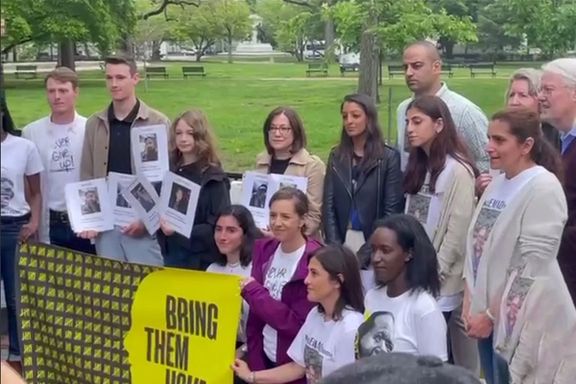
Families of Iranian-American citizens currently jailed in Iran have called on the Biden administration to prioritize their release from the Islamic Republic.

Families of Iranian-American citizens currently jailed in Iran have called on the Biden administration to prioritize their release from the Islamic Republic.
Families of businessman Emad Sharghi, conservationist Morad Taahbaz, Siamak and Bagher Namazi as well as retired captain in Iran’s merchant navy Shahab Dalili -- who is a permanent resident of the US -- gathered in front of the White House on Wednesday.
Late in April, a number of US officials, including Secretary of State Antony Blinken and Special Envoy for Iran Robert Malley, called on Tehran to release Sharghi and stop its policy of holding people as political pawns.
“For four years, the Shargi (Sharghi) family has waited anxiously for the Iranian government to release Emad”, Blinken said.
The 56-year-old businessman has been sentenced to ten years in prison on charges of espionage and collecting military intelligence but had attempted to flee while on bail awaiting the result of an appeal.
Morad Tahbaz, who also hold British citizenship, is also serving a ten-year sentence on espionage charges after arrest with other environmentalists in 2018.
Roxanne Tahbaz, his daughter, held a protest in April at Britain’s foreign office demanding action to free her father.
Foreign governments and human rights organizations have accused Iran of detaining foreigners and dual nationals on trumped up charges to use them for getting concessions from Western countries.
There are allegations that dual nationals are taken prisoner to swap them with Iranian prisoners held abroad, often serving sentences for violating US sanctions or on ‘terrorism’ charges.
In April, families of two German and two Austrian citizens currently jailed in Iran called on the governments in Berlin and Vienna to demand their release as part of nuclear talks with Tehran.
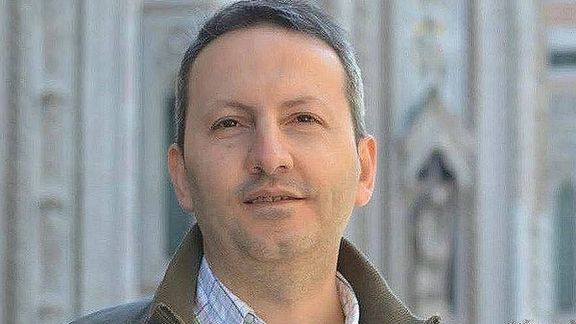
Sweden’s foreign minister has expressed extreme worries over reports about the imminent execution of a Swedish-Iranian scientist jailed in Iran.
In a tweet on Wednesday, Ann Linde reacted to “extremely worrying media reports today that Iran may carry out the death penalty on Ahmadreza Djalali (Jalali)” in the next two weeks.
She said Sweden and the European Union condemn the death penalty and demand that Djalali be released, adding that “We have repeatedly stated this to Iranian representatives. We are in contact with Iran.”
Iran’s semi-official news agency ISNA broke the news earlier in the day, quoting an unnamed official that Djalali was found guilty of “espionage for the Zionist regime” and his death sentence has now been confirmed by the Supreme Court.
Djalali was arrested when he accepted an invitation by a university to visit Iran in 2016. Authorities accused the researcher of espionage – a charge they often use against foreigners and dual nationals that they want to hold as a bargaining chip. Later, Djalali was sentenced to death as Iran tried to ramp up pressure on European countries to free individuals arrested for terrorist activities or on violations of human rights.
The ISNA report also referred to one of these individuals, Hamid Nouri, who was on trial in Sweden until this week, saying that his arrest was meant to put pressure on Iran to release Djalali.
Sweden arrested Nouri, now 61, upon his arrival in Sweden at Stockholm Airport in 2019 and in August 2021put him on trial over the mass execution and torture of political prisoners at Gohardasht Prison in Iran in July and August 1988.

The Russian ambassador to Iran says there is no obstacle in closer Moscow-Tehran cooperation in the field of armaments as a UN arms embargo on Iran was lifted.
In an interview with Russian daily Izvestia on Wednesday, Levan Dzhagaryan (Jagaryan) claimed that Tehran buys weapons from the Russian Federation only for defensive purposes, denying reports that the Islamic Republic is engaged in destabilizing activities in the region.
The statement contradicted numerous reports and accusations by UN experts, the United States and its regional allies that have insisted Iran arms Yemen's Houthi forces and militant groups in the region.
“After the arms embargo against Iran was removed, there are no more obstacles to the development of Russian-Iranian cooperation in this important and very sensitive area”, he said.
Arms trade sanctions imposed by the UN Security Council expired in October 2020, when the United States failed to garner support among permanent members to extend it.
Djagaryan emphasized that “Iran purchases weapons exclusively for defensive purposes, contrary to the assertions of some countries in the region that Iran is allegedly engaged in subversive activities in the region. I refute it.”
He also hailed the military-technical cooperation with Iran, saying, “At one time [in 2016], we supplied the S-300 anti-missile defense systems.”
Rejecting reports about Iran sending weapons -- including anti-aircraft missile launchers -- for the Russian troops to use in the invasion of Ukraine, he said that “the British media, and not only the British media, is a well-known fake news factory... This is not the first time, and I don't think it will be the last”.
Restoring the Joint Comprehensive Plan of Action
He said Russia made every effort to return the deal as it was before the Trump administration “illegally” withdrew from it in May 2018.
“There is a pause in Vienna now, negotiations are not underway yet, because basically the parameters of the upcoming deal have already been agreed, but there are a number of important issues that Iran and the United States need to resolve - these issues are still not easy to resolve”, he said.
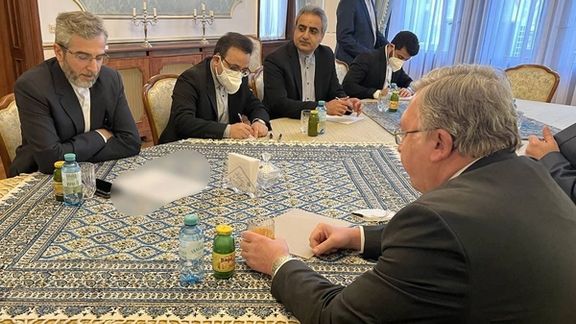
Answering a question about the reports by Israeli media that the US government is close to declaring the nuclear deal talks a failure, he said, “The Israeli media is not the most reliable source of information. I treat them with deep skepticism and distrust. They pass off wishful thinking. Let's wait.”
“No one can give any guarantee that the JCPOA will be reactivated today”, the Russian envoy noted.
He made no mention of Russia’s $10 billion agreements with Iran to build additional nuclear reactors and the US decision to wave Ukraine sanctions allowing Moscow to carry out the projects once a nuclear deal is reached.
North-South Transport Corridor
The Russian envoy stressed the importance of the North-South Transport Corridor, which has long been planned to be opened between Iran and Russia, and said, “There are two main directions here: A land route through Iran, Azerbaijan and Russia, as well as through the Caspian Sea, bypassing transit countries”.
“We are actively working on this, our trade operations with Iran are carried out both by water through the Caspian Sea and through the territory of the Republic of Azerbaijan,” he said, highlighting the recent trip to Moscow by Iranian Road and Urban Development Rustam Ghasemi.
He added that the closure of several European routes for Russia has made the North-South corridor even a higher priority.
“We have a number of very important projects with Iran, they did not start yesterday,” he said, mentioning “a project for the electrification of the Garmsar-Inche Burun railway from the central provinces of Iran to the Iranian-Turkmen border” and “the construction of the thermal power plant (TPP) Sirik, which is expected to run on gas”.
Trade Ties
He also said Iran and Russia can also cooperate in a wide range of sectors, including oil and gas, transport, communications, IT, science and technology, food and agriculture.
Dzhagaryan went on to say that Iran can offer Russia “traditional types of products, such as vegetables, fruits, dried fruits, nuts". Iranian manufacturers also offer petrochemicals, pharmaceuticals, building materials and light industry products as well as clothing and footwear, he added.
Highlighting the quality of Iranian products, considering their prices, the ambassador said, “I am now dressed in a suit of an Iranian manufacturer of Armenian origin, Mr. Hagopian. Very good suits and shirts.”
“As the Russian ambassador to Iran, I will make every effort to ensure that this cooperation develops as massively and quickly as possible for the benefit of our countries”, Dzhagaryan said.
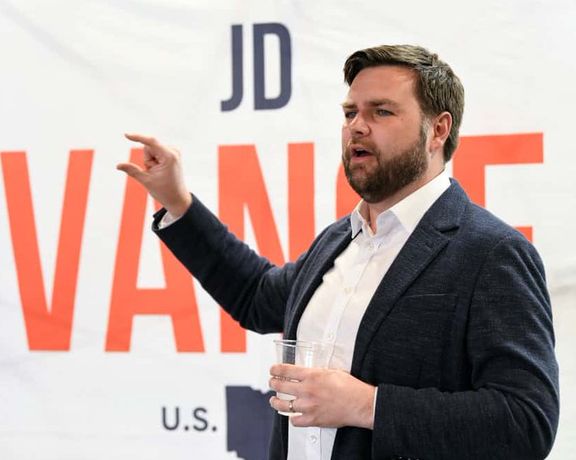
J.D. Vance, an opponent of the Iran nuclear deal and a candidate endorsed by former president Donald Trump has won the Republican Senate nomination in Ohio.
Vance gained an advantage in mid-April in a crowded field of candidates, when Trump endorsed him and propelled him to the top spot, in a sign of the former president’s political fortunes in upcoming primaries in other states.
In the run up to the primary vote, Vance criticized President Joe Biden’s“obsession with re-entering the disastrous Obama Iran deal,” and said, “One of the President Trump's best foreign policy decisions was getting out of that deal, and we need to fight Biden hard on this.“
Entering indirect talks with Iran to revive the 2015 nuclear agreement, known as JCPOA, was one of the first foreign policy initiatives of the Biden administration. After 13 months of talks an agreement remains elusive as Iran demands the removal of its Revolutionary Guard from the US list of terrorist organizations.
Opoosition to the talks and to the revivial of the JCPOA have increased in the past two months, with almost all Republicans in the Senate and some Democrats telling the administration not to make concessions to Tehran.
Vance will battle Democratic Rep, Tim Ryan in the November elections, who easily won his party’s primary, but will face a difficult fight in Republican-leaning Ohio.
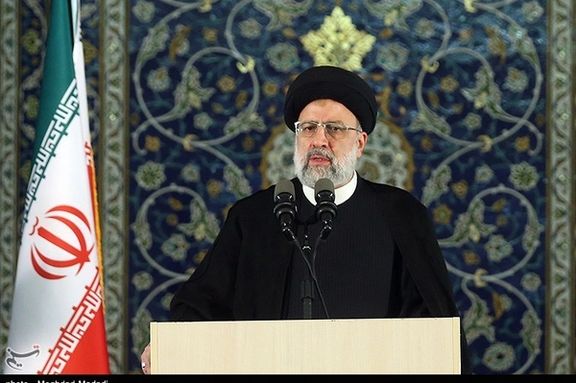
Iranian President Ebrahim Raisi has called for the return of Tehran-Kuwait relations to "their true capacities" by having more reciprocal visits and meetings.
Raisi made the remarks in a phone call with the emir of Kuwait, Sheikh Nawaf Al-Ahmad Al-Jaber Al-Sabah on Tuesday night.
Increasing the reciprocal visits can help enhance the level of bilateral cooperation, making use of the existing capacities at more operational levels, he told Kuwait’s emir.
Raisi described Kuwait’s stances on regional “conspiracies” as “wise”, expressing hope that the two neighbors can elevate their ties. Islamic Republic officials use the term ‘conspiracy’ to describe the influence of the United States and Israel.
The two countries are in a row over the Arash/al-Durra natural gas reserves in the Persian Gulf near the demarcation line of their territorial waters, with Kuwait saying the disputed gas field is “exclusively owned” to the small coastal nation and its neighbor Saudi Arabia.
Iran “is not part of the gas field” and is not a party to development projects related to it, Foreign Minister Sheikh Ahmad Nasser al-Mohammad al-Sabah said in March.
The head of Iran-Kuwait Joint Chamber of Commerce in Tehran said late in 2021 that Kuwait has stopped issuing visas for Iranian businesspeople.
Hani Feysali added trade ties between the two countries have dropped drastically, duo to Iran’s weak diplomacy, saying bilateral trade has been recording a downward trend in recent years as its total volume fell from $400 million in 2020 to $18 million last year.
During the fifth US-Kuwait Strategic Dialogue in Washington, DC in January, US Secretary of State Antony J. Blinken and Foreign Minister al-Sabah warned of threats posed by Iran to the stability of the region, reaffirming a shared commitment to promoting security and peace.

The death sentence of a Swedish-Iranian scientist jailed in Iran will be carried out in the next two weeks, ISNA news agency in Tehran reported on Wednesday.
The text published by ISNA is in quotation marks, meaning that someone else provided the wording. It says that Djalali, was found guilty of “espionage for the Zionist regime” and his death sentence has now been confirmed by the Supreme Court.
Ahmadreza Djalali (Jalali) was arrested when he accepted an invitation by a university to visit Iran in 2016. Authorities accused the researcher of espionage – a charge they often use against foreigners and dual nationals that they want to hold as a bargaining chip. Later, Djalali was sentenced to death as Iran tried to ramp up pressure on European countries to free individuals arrested for terrorist activities or on violations of human rights.
The ISNA text also refers to one of these individuals, Hamid Nouri, who was on trial in Swedenuntil this week, saying that his arrest was meant to put pressure on Iran to release Djalali.
Sweden arrested Nouri, now 61, upon his arrival in Sweden at Stockholm Airport in 2019 and in August 2021put him on trial over the mass execution and torture of political prisoners at Gohardasht Prison in Iran in July and August 1988.
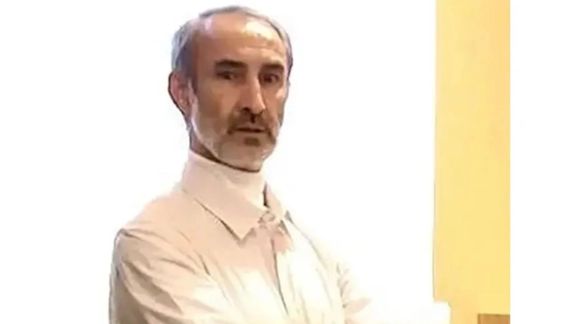
Most of victims were linked to the opposition group Mujahedin-e Khalq Organization (MEK) but there were also some with links to leftist and secular groups.
Nouri is the first person ever put on trial for the executions carried out on the basis of a fatwa by Iran's then-supreme leader, Ayatollah Ruhollah Khomeini.
Swedish prosecutors who produced dozens of witnesses against Nouri, have demanded life imprisonment for him. The last session of his trial ended this week and a verdict will be announced in July. The news about Djalali’s impending execution coincides with the conclusion of Nouri’s trial.
Iran has a 43-year history of taking foreigners hostage to put pressure on European countries and the United States, either for financial reasons or to secure the release of individuals arrested in the West for illegal activities benefitting the Islamic Republic. On many occasions, prisoner swaps have taken place. Djalali’s case seems to be one of those instances when Tehran wants to use him to free Nouri or get a reduced sentence for him in exchange for not executing Djalali.
The ISNA text also alleges without any evidence that Nouri was arrested in Sweden at the behest of Israel to secure the release of “its spy”, Djalali.
The Swedish Iranian detainee has insisted he is innocent and was forced to confess to espionage under torture. His health has deteriorated in long months of solitary confinement, torture and assaults by prison guards.